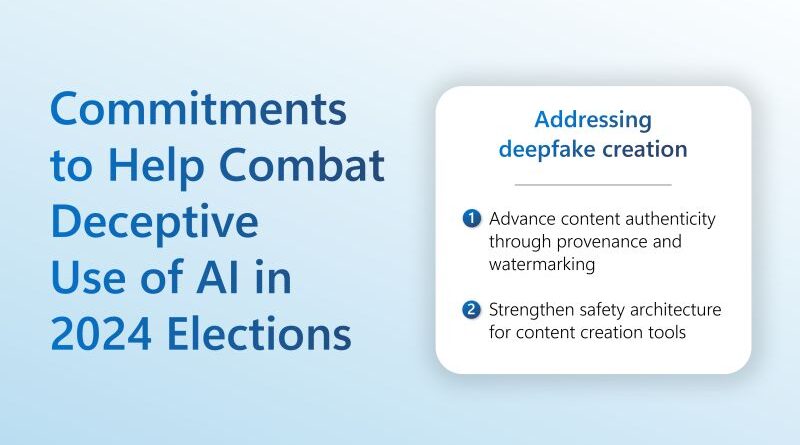AI Used In Elections – 2024
AI Used In Elections
The potential impact of artificial intelligence (AI) on voter education and political discourse is a hotly debated topic as high-stakes elections in more than 50 nations draw near. AI poses hazards and opportunities, making it difficult for governments and organizations to adjust to this quickly evolving technological landscape. AI can produce deepfakes and personalized communications.
The extensive use of AI in election preparation, execution, and aftermath—including the creation and dissemination of public messaging regarding candidates and electoral procedures—will be seen for the first time in 2024.
In an effort to address the effects of artificial intelligence (AI) on democracy, the Campaign Legal Center (CLC) has been working hard to inform the public about what to expect from future political campaigns and to provide legislative remedies that would reduce the biggest threats to our electoral system.
Globally, artificial intelligence (AI) is becoming more and more involved in elections, influencing everything from voter engagement to campaign tactics to election security. Here are a few ways that AI Used In Elections.
Follow Our web site :- hindidiaries.info for more information
Artificial intelligence (AI) has the potential to affect voter perceptions of candidates as well as election administration. One such manipulation may be the dissemination of false information to discourage voters from casting ballots.
Malicious actors might utilize artificial intelligence (AI) capabilities to fabricate and disseminate believable disinformation regarding when and where to cast a ballot, or to dissuade voters from ever going to their designated polling places.
Campaign Strategies:
Artificial intelligence (AI) systems are able to evaluate large volumes of data in order to determine voter preferences, forecast voter behavior, and adjust campaign messaging accordingly. This involves using social media platforms to microtarget particular populations with tailored communications.
Voter Engagement:
Artificial intelligence (AI)-driven chatbots and virtual assistants can interact with voters online by answering questions about candidates, polling places, and other election-related matters. By making information more easily accessible and convenient, these tools have the potential to increase voter turnout.
Predictive analytics refers to the use of AI systems to estimate election results by analyzing both historical and current data. Artificial intelligence (AI) algorithms are used by political analysts and polling companies to forecast voter opinion and election outcomes.
Election Security:
AI technologies are used to identify and counteract a range of risks, including voting fraud, disinformation campaigns, and cyberattacks, that could compromise the integrity of the election. Algorithms using artificial intelligence (AI) can examine data trends to find abnormalities and highlight questionable behavior.
Automated intelligence (AI) systems have the potential to expedite voter registration procedures and enhance the efficacy of voter identity verification. Voter registration systems are being made more secure and less vulnerable to voter impersonation by incorporating biometric technologies like fingerprint scanning and facial recognition.
Sentiment analysis and Language Processing:
Artificial intelligence (AI)-driven natural language processing (NLP) systems may scour social media and online forums to discover patterns linked to political candidates and issues, as well as to measure public opinion. Policies and campaign tactics can be informed by this knowledge.
Election Administration:
Resource allocation, precinct mapping, and ballot design are just a few of the logistical activities that AI technologies are utilized to optimize. By streamlining the electoral process, these tools increase operational effectiveness.
Inclusivity and accessibility:
Artificial intelligence (AI) technologies can help voters with impairments by offering screen readers and voice-activated interfaces as other voting options. Elections are made more inclusive and accessible for all citizens thanks to these accessibility measures.
To sum up, fresh educational initiatives are in motion to merely get the public ready for the possibility of AI-generated media being used to sway and potentially even control elections, hopefully lessening the worst of its consequences.
Twenty internet giants, including Google, X (previously Twitter), OpenAI, Facebook and Instagram’s parent company Meta, and TikTok, have actually promised to take proactive measures to identify, monitor, and counteract the use of deepfakes and other attempts to influence elections. They have to fulfill those commitments, of course.
Even though there seems to be a lot of interest in stopping AI-based election tampering, there is still a long way to go before many of the suggested remedies will truly protect voters and the democratic process.
For this reason, the Campaign Legal Center keeps urging decision-makers throughout the nation to step up and confront the particular issues AI poses to democracy.
How will AI influence the 2024 election?
In the 2024 election, artificial intelligence (AI) is expected to influence campaign tactics by using data analysis for targeted messaging, chatbots and virtual assistants to increase voter engagement, AI-driven threat detection to improve election security, and predictive analytics to help anticipate results.
How to protect democracy in the era of AI?
Rules governing the transparent and equitable use of AI in elections are essential to preserving democracy in the face of AI breakthroughs. Voter data and election systems need to be safeguarded by strong cybersecurity safeguards. AI-powered fact-checking technologies are essential to combating misinformation. Encouraging digital literacy to identify trustworthy information is just as important as enacting laws protecting data privacy. While oversight bodies ensure compliance, regular audits ought to tackle AI bias. In a democracy, ethical guidelines for AI can be established through international cooperation. Voter turnout is increased by using AI techniques to promote inclusive civic involvement.
Will AI ‘help’ you vote next election?
By using chatbots or virtual assistants to deliver information about candidates, polling places, and ballot initiatives, AI may help voters in the upcoming election. AI-powered solutions may also improve accessibility for people with impairments and expedite the voter registration process.

